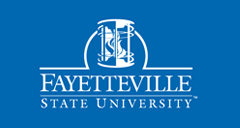Abstract
This qualitative, phenomenological study was conducted to explore the lived experiences of 12 Afghan women enrolled in higher education institutions in Afghanistan. The objective was to develop an understanding of the participants’ perceptions of the factors that led to their enrollment in higher education and the factors that inhibit Afghan women from participating in higher education. Data were collected through a demographic questionnaire; one-on-one, face-to-face interviews; and an open-ended questionnaire. The interview and questionnaire data were analyzed using Moustakas’s modified van Kaam method. The following themes were identified through the data analysis: (1) Barriers inhibit Afghan women from obtaining higher education, (2) Afghan women perceive benefits of obtaining higher education, (3) Afghan women who enter higher education institutions have similar characteristics, and (4) educated Afghan women have opportunities to improve Afghanistan. These themes indicate that Afghan women may face many barriers to obtaining higher education; however, the barriers can be penetrated when Afghan women have financial stability and middle-class status, a responsible and supportive family, self-motivation, support of religious leaders, support of higher education leaders, and belief in the value of higher education. When Afghan women overcome the barriers and obtain higher education, they are more likely to feel capable of improving their lives and the lives of family members. Through obtaining higher education, Afghan women may also feel empowered to assist in Afghanistan’s reconstruction process.
Recommended Citation
Mashriqi, Khalida
(2016)
"Afghanistan Women Perceptions of Access to Higher Education,"
Journal of Research Initiatives: Vol. 2:
Iss.
1, Article 2.
Available at:
https://digitalcommons.uncfsu.edu/jri/vol2/iss1/2
